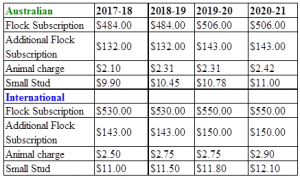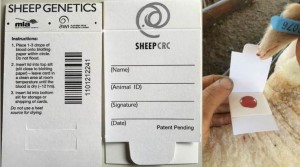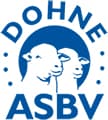May Newsletter 2017
Sign Up to receive Dohne Newsletters – Click Here
Full Newsletter – PDF Copy
Technical
Second Index
As a result of some inaccurate recording of births and deaths and concerns raised by members in relation to this, Council passed that a second index which does not include a NLW component be created.
This index will be referred to as the Dohne Index. The current index (which does contain NLW data) will be aptly named the Dohne Plus Index.
SG are working on this second index and aim to implement it well before ram selling.
Which one to use?
It is the choice of individual members which index they display. At a single vendor sale or field day, either the Dohne index or the Dohne plus index can be used. At multivendor sales and exhibits, breeders are required to display the same index, which ever is mutually agreed upon.
Ram Breeders Manual
The most recent version of the Ram Breeders Manual has been printed and is being distributed at the Roadshows. In December 2014 the old version was scanned and converted to text. Many changes and improvements were made resulting in the final version: Edition 6. Special thanks to Allan Casey, Rachel Browne and John Nadin for the enormous amount of hours invested into the revamp. For members that would like a copy of this new manual please contact Tessa Dawes secretary@dohne.com.au.
AGM
This years AGM will be held in Naracoorte South Australia on the Wednesday 9 August and will incorporate a three state sire day (SA, VIC, NSW). This event will follow on from the Hamilton Sheepvention.
The sire day will commence at 12 noon and the AGM at 4pm. A dinner will be held that night.
Accommodation and dinner venue details in the next newsletter.
Council Roadshows
The final leg of the council roadshows will include a webinar hook up that will allow those that missed the WA & SA presentation and those that can’t attend. However, to grasp the full concept of some major breed decisions and to be involved in discussions, council highly recommends members attend.
The NSW Armidale roadshow will include an Eastern States meeting and include the elections of office bearers.
NSW
Monday 19 June – 12 noon
University of New England, Armidale NSW
Victoria/Southern NSW
Wednesday 21 June – 1pm
Border Inn, Moama NSW
For more information please contact John Nadin 0427 474 610 john@macquariedohnes.com.au.
Sheep Genetics Upcoming Regional Forums
NSW
Inverell – Tuesday 16 May
Cowra – Tuesday 23 May
Victoria – Ballarat Tuesday 30 May
South Australia – Burra Tuesday 6 June
Western Australia – Brookton Thursday 15 June
Registration for these is via the Sheep Genetics website.
Sheep Genetics Updated Fee Schedule
Recently the Sheep Genetics fee schedule was reviewed, and the updated prices are listed below. These will be brought into effect 01 July 2017. The increase in fees is the first change in prices since 2014. The other change to the fee schedule is the animal cap has now increased to 2500 animals per drop.
Blood cards for Genomics : FREE TO SUBMIT
Breeders are encouraged to collect blood samples from key sires and dams and send to SG. Any sheep can be sampled, but those with tested progeny will yield more rapid genomic results for the breed. Individuals may not see results in the short term, but as a breed society we need to get the genomics to back up our current testing and ensure we don’t get left behind in the technology stakes. Allen Kelly is the contact for more information, his details are on the sidebar.
2017 Journal
Thanks you for the overwhelming support.
This journal goes to print in June and will be available at the Australian Sheep and Wool Show, Bendigo VIC. Council will then endeavour to distribute the journals to each state. Members will be notified by their respective state bodies as to the pick up point/s.
Beyond the Bale Magazine
On the last page of Beyond the Bale Magazine you can email in interesting photos. It would be great to see some photos of Dohnes submitted. Please send your photo/s to Richard Smith richard.smith@wool.com.
To view this magazine Click Here
Truth About Wool National Tour 2017
Chantel Mcalister is a professional photographer and Master Classer.
The truth about wool campaign started in 2016 with a video documentary Chantel did on crutching which was well received. Chantel has made it her personal mission to educate the world on our beautiful sustainable fibre.
Chantel will be in Tasmania during May/June and will return to all other states from August on.
Chantelle will lock in property visits 2-3 weeks out from each state tour leg.
If you are shearing Dohnes when Chantel is in your area and would like her to visit please contact her via email; thetruthaboutwool@gmail.com thetruthaboutwool@gmail.com
For Chantelle’s itinerary go to; www.chantelrenaephotography.com/tour-information/
Brett’s Blurb (Brett Wilson, Dohne Data Manager)
These articles are aimed at providing some tips and tricks that might help. To start with there will be a series of articles on getting the most out of your Dohne recording.
Part 2: Pre-Lambing and Lambing – making the most of NLW
The Dohne requirements are to capture the following information from a ewe pregnancy. Lamb ID, Ewe ID, Sire ID, Conception Method (CM), Sex, Date of Birth (DOB) and Birth Type (BT).
From the April “Brett’s Blurb” you should have a complete list of the ewes joined, the sires used and the CM.
When the lambs are born you already have procedures in place to capture the lamb ID, match it to the Ewe and Sire ID and you are meeting the requirements but you might not be getting enough information to satisfy the requirements for Number of Lambs Weaned (NLW) ASBVs.
The Dohne system is doing an excellent job of capturing performance information for lambs, but significant improvements can be made in estimating the reproduction information like NLW ASBVs. It is common commercial practice to pregnancy scan all ewes and there are three options. Basic, is the ewe pregnant or not. Scan for multiples, is the ewe carrying single, twins, or triplets. Early or Late, an estimate if the ewe fell pregnant early or late in the joining period, provides a guide to the age of the foetus. Adding scanning data to the data already required to be collected could greatly improve NLW information.
The additional procedure might be
1. Take the mating lists developed from the April “Brett’s Blurb” indicate the dates the rams “went in” and “came out” of the ewes for a natural joining and keep this file ready to send to the database.
2. Pregnancy scan the ewes when foetal age is between 35 and 85 days (Talk to your scanner regarding the best time).
3. Scan for Multiples, record every ewes scan result as either 0 (Dry), 1 (Single), or 2 (Multiple), add this data to the joining list and send to Dohne database when submitting data.
4. If you are not accurately capturing DOB (those of you using DNA to determine pedigree) you may want to get your scanner to determine “Early or Late” foetal age so a split in the groups DOB can be developed to better represent actual lamb DOB.
5. When this data is sent to the Dohne database, I will have enough information to determine Dry Ewes, Lambs born dead, check Birth Type, and add Rear Type (RT) to the data. The current procedure I use is to create “False lambs” for all the dry ewes and dead lambs. DRY001, DAB001 etc. Soon, I will transition to using a mating module to submit mating records to Sheep Genetics. Note: Sheep Genetics now checks your data quality for twins. SG believes it is not possible for 100% twin survival. Some of your reproduction data could be excluded if you have 100% twin survival.
6. Advanced, an additional piece of information that could greatly help in the future is to capture Mature Ewe body weight (and maybe condition score) at time of joining, I will add this information to the mating module and send to SG, this will help with reproduction data.
7. Advanced two, an additional piece of information that could greatly help in the future is to capture Ewe management group. If all the ewes are not managed together it is important to identify the different management groups.












 Facebook
Facebook YouTube
YouTube Instagram
Instagram